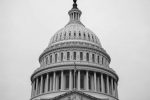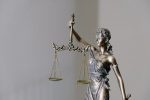What Is A Conservative In 2023?
Feb 4th, 2023 | By Dr. Jim Eckman
One historical aspect of America’s political culture is the rise and fall of political parties. The Federalist Party was the “faction” (George Washington’s term) associated with George Washington, Alexander Hamilton and John Adams. By the presidency of James Monroe it was dead. The Whig Party emerged in the early 1800s, but by 1856 it was dead, replaced by the Republican Party, the party of Lincoln. Today, the Republican Party seems hopelessly divided and the infighting is potentially fatal: Witness the intense struggle over Kevin McCarthy’s effort to become Speaker of the House. That struggle gave every evidence of a Party gravely divided.











